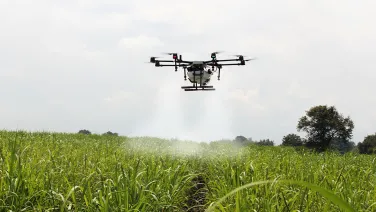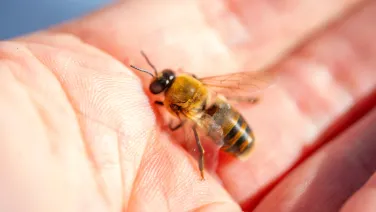ANU centre to tackle world's biggest biosecurity challenges

A new training centre housed at The Australian National University (ANU) will equip the next generation of scientists to tackle some of the world’s biggest biosecurity challenges, including the most effective ways to build trust when threats such as the Varroa mite are identified.
ANU Professor Peter Solomon is the Director of the Australian Research Council (ARC) Training Centre in Plant Biosecurity, which will be officially launched today, to coincide with the International Day of Plant Health.
Professor Solomon said the Centre’s work will help safeguard Australia’s ecosystems from dangerous pests and diseases.
“This Centre will train the next generation of innovators to transform the sector to meet future challenges,” he said.
“From the multi-billion dollar agricultural, horticultural and forestry sectors, to native plants and their cultural meaning to First Nations people, Australia’s flora impacts us all. We need to be proactive in our efforts to protect it.”
One of the PhD projects underway at the Centre will focus on the emergency response to the parasitic Varroa mite, which was first detected in Australia in June 2022.
Australia was one of the last countries in the world to remain free of the pest. Since its arrival in the country, it has been detected in bee hives in New South Wales and more recently in Victoria, Queensland and the Australian Capital Territory.
While the initial response to the mite focused on eradication, in 2023 the National Management Group, Australia’s peak decision-making body on the Varroa mite response, made the decision to transition to management of the parasite.
Aphrika Gregson’s PhD project aims to understand how to build and maintain connections between decision makers, stakeholders and the public during a biosecurity outbreak.
“The Varroa incursion offers valuable lessons, potentially reshaping Australia's biosecurity threat response,” Ms Gregson, who is also a biosecurity officer with the NSW Department of Primary Industries and Regional Development, said.
“A critical factor for a successful response is social licence to operate, which depends on how stakeholders perceive the impacts of both the pest and the response. Effectively communicating the science, building trust, and ensuring meaningful engagement are essential.
“We have an opportunity with this project to interrogate the Varroa response retrospectively for its strengths and weaknesses.”
Another PhD project at the Centre will research the use of statistics and ‘big data’ to improve biosecurity surveillance practices, enhancing community confidence when an area is declared free from a pest or disease.
The Centre is funded by the ARC under the Australian Government’s Industrial Transformation Research Program. It is a collaboration between 27 partner organisations, including universities, government, peak bodies and industry.
This article was first published by ANU Reporter.



